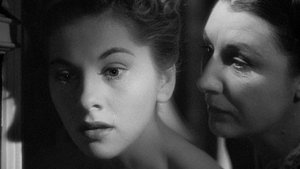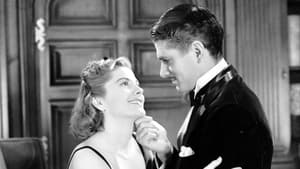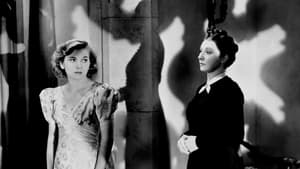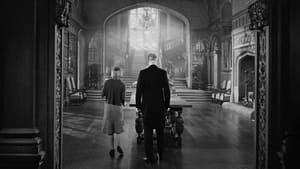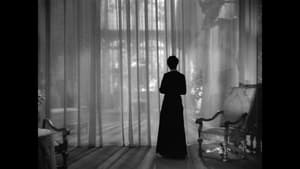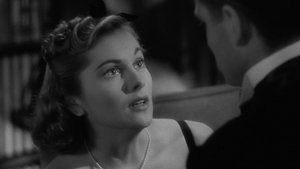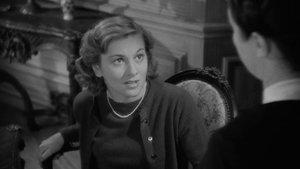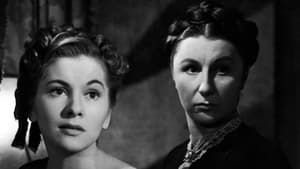Video Sources 0 Views
- Watch trailer
- Rebecca 1940 Colorized

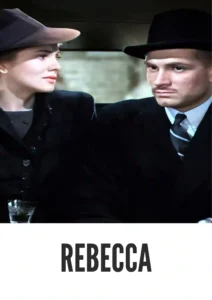
Synopsis
Table of Contents
ToggleSecrets and Shadows: Rebecca (1940) in Breathtaking Color

Step into the eerie world of Alfred Hitchcock’s Rebecca, a spellbinding Gothic romance thriller from 1940, now beautifully colorized for a mesmerizing viewing experience. This film, based on Daphne du Maurier’s novel, weaves a tale of mystery, jealousy, and dark secrets within the grand halls of Manderley. Perfect for fans of classic cinema and suspenseful love stories, this HD download brings a timeless masterpiece to life with stunning clarity and depth. Discover why Rebecca remains one of Hitchcock’s most celebrated and haunting films. Other titles include: Daphne du Maurier’s Rebecca.
Rebecca Storyline: A Shadowy Past Unveiled
Rebecca tells the story of a young, naive woman (Joan Fontaine) who marries the wealthy and enigmatic Maxim de Winter (Laurence Olivier) after a whirlwind romance in Monte Carlo. She returns with him to his imposing estate, Manderley, on the windswept English coast. There, she finds herself haunted by the memory of Maxim’s deceased first wife, Rebecca, whose presence permeates every corner of the mansion.The new Mrs. de Winter struggles to escape Rebecca’s shadow, facing the intimidating housekeeper, Mrs. Danvers, and the lingering mysteries surrounding Rebecca’s death. As she delves deeper into the secrets of Manderley, she uncovers a web of deceit, passion, and hidden truths that threaten to destroy her marriage and her sanity. Rebecca is a masterfully crafted tale of suspense, exploring themes of identity, jealousy, and the power of the past.
Movie Cast
The film boasts an incredible cast of actors who bring this chilling story to life:
- Laurence Olivier as Maxim de Winter
- Joan Fontaine as the second Mrs. de Winter
- George Sanders as Jack Favell
- Judith Anderson as Mrs. Danvers
- Nigel Bruce as Major Giles Lacy
Movie Genre
Rebecca masterfully blends the genres of Gothic romance and psychological thriller, creating a unique and unforgettable cinematic experience. Its atmospheric setting, suspenseful plot, and complex characters make it a standout film in both genres.
Historical Context: Hitchcock’s American Debut
Released in 1940, Rebecca marked Alfred Hitchcock’s first American film, solidifying his status as a master of suspense on both sides of the Atlantic. Produced by David O. Selznick, the film was a critical and commercial success, winning the Academy Award for Best Picture. Rebecca reflects the changing landscape of Hollywood cinema, showcasing Hitchcock’s ability to adapt his signature style to a new cultural context while retaining his artistic vision.
Colorization Details
This colorized version of Rebecca has been meticulously restored using advanced digital techniques, enhancing the visual impact while honoring the film’s original atmosphere of suspense and mystery. The colorization process involved careful analysis of the original black and white footage, with attention to detail in recreating the period costumes and the imposing architecture of Manderley. While the specific tools used remain confidential, the techniques employed included sophisticated algorithms for color palette selection and image enhancement. This painstaking process breathes new life into the characters and settings, making the story even more captivating for modern audiences. While debates about colorizing classic films continue, this version introduces Rebecca to a new generation, ensuring its enduring legacy.
Technical Details
- Director: Alfred Hitchcock
- Screenplay: Robert E. Sherwood, Joan Harrison
- Based on: the novel by Daphne du Maurier
- Cinematography: George Barnes
- Edited by: James E. Newcom
- Production Company: Selznick International Pictures
- Distributed by: United Artists
- Runtime: 130 minutes
Technical Specifications
- Download Format: MP4
- Resolution: HD (1080p)
- Compatibility: Compatible with most devices, including smartphones, tablets, computers, and smart TVs.
Reviews and Critical Reception
Rebecca (1940) is widely regarded as one of Alfred Hitchcock’s finest achievements, praised for its masterful direction, compelling performances, and atmospheric storytelling. The film won the Academy Award for Best Picture and has been recognized by the American Film Institute as one of the greatest American movies of all time. As a timeless classic, Rebecca continues to captivate audiences with its haunting beauty and suspenseful intrigue.
FAQs
- Q: What is Rebecca about?
- A: Rebecca is a Gothic romance thriller about a young woman who marries a wealthy widower and finds herself haunted by the memory of his deceased wife.
- Q: Is Rebecca (1940) a well-known Hitchcock film?
- A: Yes, Rebecca is one of Hitchcock’s most celebrated films, known for its suspenseful plot and atmospheric setting.
- Q: Is this version of Rebecca colorized?
- A: Yes, this version has been professionally colorized to enhance the viewing experience.
- Q: What makes Rebecca a classic?
- A: Rebecca‘s enduring appeal lies in its masterful blend of romance, mystery, and suspense, as well as its compelling characters and unforgettable atmosphere.
- Q: What is the download format?
- A: The download format is MP4, which is compatible with most devices.
- Q: What resolution is the download?
- A: The resolution is HD (1080p), providing a high-quality viewing experience.
Download Now in HD!
Watch Rebecca Today!
